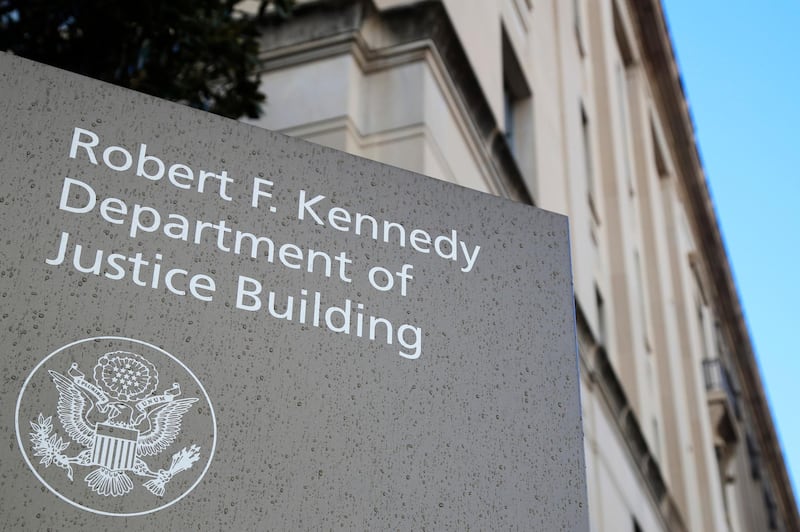The US technology superpowers need better talking points - and fast.
The US Department of Justice said Tuesday that it would start reviewing how “market-leading online platforms” became big and whether they are squashing competition, limiting innovation or hurting consumers in other ways that may violate US anti-trust laws. The government didn’t name names but, rest assured, you can throw Google parent company Alphabet, Facebook, Amazon and maybe Apple into that mix.
This shouldn’t be a surprise to those tech giants or to anyone who has been following the news. It emerged in the last couple of months that the Justice Department and its anti-trust counterparts at the US Federal Trade Commission were divvying up responsibility for the US tech powers to look into their compliance with the law. And just about the only bipartisan issue among politicians in Washington is bashing big technology companies for ills real or imagined.
To state the obvious: government investigators crawling all over Silicon Valley hunting for evidence of illegal monopolies is not at all good for the superpowers of the technology industry. Government inquiries are messy, lengthy, tricky to untangle from politics and impossible to predict. Investors know this and it’s now clear that new legal constraints or regulatory crackdowns are among the biggest worries of tech investors.
Now that the antitrust cops are coming in the door, the technology powers need to freshen their playbook in how they rebut questions about their size, power and influence. The playbook is not good.
The standard lines - like the ones trotted out at a House of Representatives anti-trust hearing last week - go something like this: scrutiny of big companies is healthy but do not worry about us. The titantic technology companies of America are not that big or powerful. Really, we could die at any moment. And we help people, businesses, American workers, the US economy and democracy.
All of that may very well be true. Amazon does help small businesses find buyers for their merchandise in a way that big retailers of the past never did. Google and Facebook do democratise the distribution of information and help local businesses find customers. Apple has created an app economy that never existed before. All these companies have made products that are genuinely useful and novel and the success of these companies is a credit to the best of America. And they are not invincible. It’s possible changes in technology may leave them in the dust.
But that is not the whole story, and that’s not all that government antitrust authorities care about. What they want to know, and what the public deserves to know, is whether these technology companies have used their success to cheat their way into more success. Have they used their muscle to tilt the game in ways that unfairly help them and hurt consumers by giving them ultimately inferior products and services?
It’s not about the companies’ morals or even their size. What matters is what the technology superpowers do. The public and lawmakers cannot allow the technology companies to answer questions that are irrelevant or to engage in pedantic arguments about the companies’ size relative to the planet Jupiter. Let’s keep the focus on behavior.
Does Google, as revealed in portions of an FTC staff report from earlier this decade, boost the web search rankings of its own local business listings above those of other companies - even when Google’s computer systems determine rival companies had more relevant information? (FTC commissioners unanimously voted not to pursue an anti-trust lawsuit and possibly a break-up of what was then a smaller Google.) Do Apple or Amazon use their popular consumer products to nudge the dial in ways give their own apps or products an advantage over alternatives from other companies? That behavior is how consumers get hurt - and it happens even if people don’t feel as if they’re being taken advantage of.
I read this June speech from the head of the Justice Department’s anti-trust division and came away thinking he is dead serious about going after tech companies. Among the messages I heard was that anti-trust cops don’t care if the tech companies make products people like, even if those companies have lowered prices or made free services. None of that absolves them of responsibility to play fair with their power and keep the competition fair for the good of consumers.
Behaviour and intent are not easy things to figure out. That’s why government investigators and congressional subpoenas are so powerful. They reveal the inner workings of powerful companies. The talking points don’t matter. Flag-waving doesn’t matter. What matters is what the companies do.
Bloomberg






